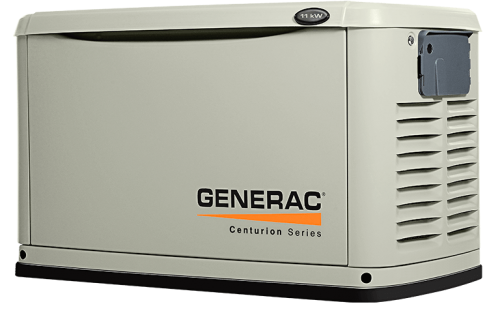Click here to Subscribe to Chips Tips Blog
Why Standby Generators are Essential

Canada can kick out some pretty difficult winters. This is a fact most Canadians simply take for granted (and new transplants will find out quickly enough).
During the winter, it is more common to hear about the need for a standby generator. Heavy snowfalls, ice and snow buildup in trees and on rooftops, high winds, freezing rain—this is the type of winter weather that reliably produces power outages.
But the truth is, power outages happen all year long. Spring, summer, and fall storms can be just as devastating. Wildlife, construction, natural disasters, and simple human error can cut power to homes and workplaces at any time.
This is why we became a Generac authorized dealer for the Muskoka, Gravenhurst, and surrounding areas here in Ontario. We believe that having a reliable source of emergency standby backup power is simply a necessity in a world where nearly every resource we rely on requires power to operate.
In this post, find out what you need to know to choose the best standby generator for your home or business.
What Would Life Be Like Without Power?
The choice to purchase and install an emergency standby generator is a deeply personal one. For some people, they choose to install a generator because they have gone through an extended power outage and don't ever want to do it again.
For other people, the birth of a new family member or a perfectly understandable fear of the future unknown prompts them to pick out an emergency generator and have it installed.
Because no two home or business situations are ever identical, the best way to decide if now is the right time to install a standby generator is to ask yourself these types of questions:
- How well would I be able to cope without access to light, heat, air conditioning, cooked food, and similar power-driven comforts?
- Are there members of the family (especially the young and elderly) who might struggle to cope with an extended power outage without health consequences?
- How would an extended power outage (more than 24 hours) affect stored foods such as frozen meats, perishables, and groceries?
- Would it be safe for family and/or pets to go without power during certain times of year, such as when temperatures are very hot or below freezing?
- Is it possible the house or business itself might sustain damage from an extended loss of power (such as burst pipes or inoperable sump pumps that might cause water damage or flooding)?
- Would there be a potential safety or security risk during a power outage in terms of high-value items that are stored on site under the protection of a powered security system?
By answering these and other similar questions for yourself, you can get a better sense of how well your home or business and its occupants would fare during a power outage.
Most importantly, you could more accurately gauge the financial consequences of a power outage and weigh those against the choice to invest in an emergency on-site standby generator.
How a Standby Generator Works in an Emergency
If you have never had an emergency standby generator before now, you are likely quite curious about how it would work.
For example, let's say all of a sudden the power goes out. What happens next?
If you have a standby generator, this is what will occur the moment the power goes out:
- Your standby generator will detect the loss of power and prepare itself to take over.
- Your standby generator will automatically turn on whether you are home or not.
- Your standby generator's automatic power transfer switch will begin sending power to your home via the generator and continue until regular power is restored.
- Your standby generator will sense when regular power is restored and automatically shut itself off when it is no longer needed.
This entire process will unfold in a matter of seconds once your regular power source is no longer accessible.
So as long as you have selected a standby generator that is sized and rated appropriately for your space and power needs, you will hardly know that there has been a power outage—this is how fast your generator power will take over.
How to Select a Standby Generator
The key to making this all work, of course, is to select the right generator for your space and power needs on a daily basis.
Here, it is important to understand that there is a very real difference between the small portable generator you have probably seen on sale at home improvement stores and a true standby generator.
The typical small plug-in generator generally taps out at around 12,000 watts, which is far less than the 22,000+ watts the average home requires for backup power.
The difference is one of powering a single appliance or room versus powering an entire home or office. With a small plug-in generator, you might be able to keep your perishables from spoiling for a day or two.
But with a full-size wired standby generator that is well-matched to the needs of your space, you could power your entire home or office until regular power is restored.
Here, you need to decide what you need to power during an outage. Powering just a few essential appliances will require less generator energy than will powering your entire home or office.
Contact Gravenhurst Plumbing, Heating & Electric for Help
Here at Gravenhurst Plumbing, we are proud authorized resellers of Generac standby generators. With more than seven decades of expertise under our belt, we have the knowledge and expertise to recommend and install the right standby generator for the size of your space and your power needs.
Contact us at 705.687.3402, 877.885.3403, or online.

